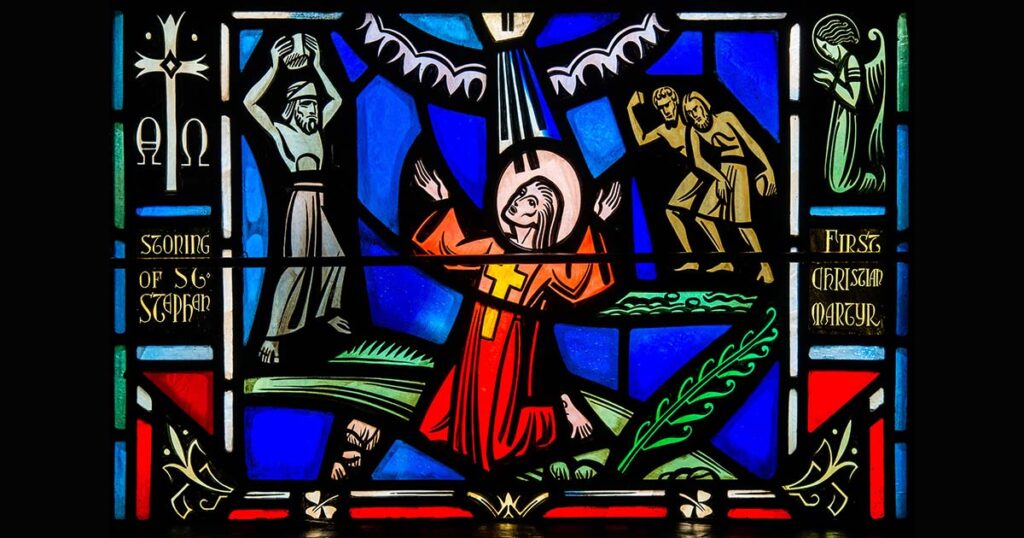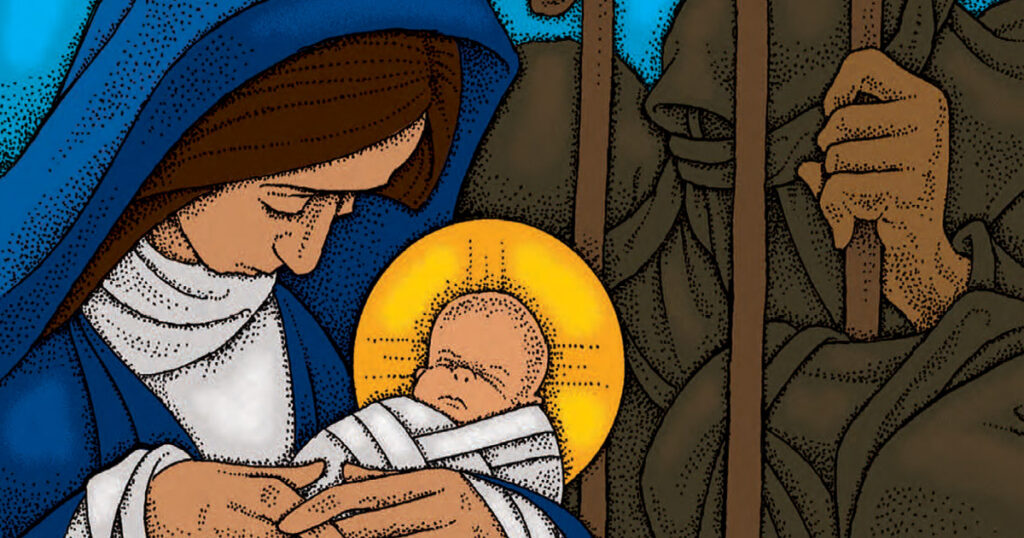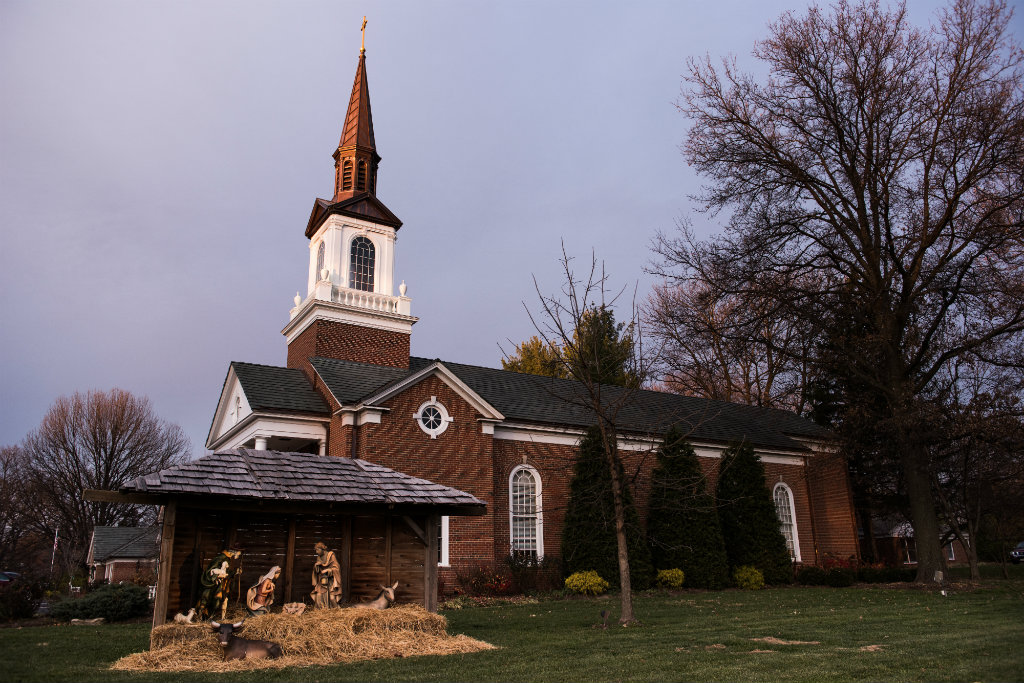The altar guild should get a bonus for the first week of Christmas. On December 26th, the paraments change from the white of Christmas Day to red for St. Stephen, the first martyr. On the 27th, white is back for St. John, the disciple Jesus loved. The next day, violet makes a rare winter appearance to commemorate the Holy Innocents of Bethlehem — unless the 28th falls on a Sunday, in which case the color appointed is red. The church dresses in white again for the Circumcision and Name of Jesus on January 1, and the remainder of the Christmas season.
It’s a lot to remember. Why do we do it?
The saints go marching all year long. Maybe your family’s Christmas season is colored by some happy birthdays or sad memories. The church is no different. The red of the martyrs commemorates St. Stephen. We remember St. John with the white of saints who were not martyred. We honor the particular pain and mystery of the Holy Innocents with solemn violet, unless it is brightened by the joy of the Lord’s Day to the normal martyrs’ red.
In will and deed
These three commemorations in the early days of Christmas have long caught the church’s notice. In Celebrating the Saints, the Rev. William Weedon draws our attention to a traditional observation: Stephen was a martyr in will and deed. He voluntarily went to death because of his faith in the Lord and Savior Jesus. John may be thought of as a martyr in will but not deed. Although he would have died for confessing Christ, he is the only apostle remembered as having been denied the opportunity. The Holy Innocents were martyrs in deed but not will: They died for the sake of Jesus, but such little ones were not yet able to confess His name with their own minds and tongues.
Christmas, we all come to learn, is not strictly comfort and joy. You wanted a Roomba and didn’t get it. You wanted to give a Roomba and couldn’t afford to. Your Christmas ham tasted like a boot. The box with the big bow and your name on it contained exercise gear. Your pastor preached a sermon that just didn’t do it for you. You wanted a dear one to be next to you on Christmas Eve, and she wasn’t. You wanted to be dear to someone on Christmas Day, and you weren’t.
Similarly, a person might pray for martyrdom and never receive it. Or a person might never consider martyrdom, or even pray to be spared it, and find himself handed a palm anyway.
Thy will be done
St. Stephen, the Holy Innocents and St. John together embody the Third Petition of the Lord’s Prayer: “Thy will be done.” Jesus teaches us this prayer in the Sermon on the Mount, and He prays it Himself in Gethsemane. God’s will to break every evil plan and purpose of the devil, the world, and our flesh included many costly deeds. The murders of Stephen and the Innocents, and the exile of John, are tastes of the bitter cup of suffering Jesus received from the Father. God has spared no expense to keep us firm in His Word and faith. Until we die, “Thy will be done” is our petition to pray.
We do well to remember the many ways God has answered this prayer for His people. St. Stephen teaches us boldness and confidence. The Holy Innocents forbid us to think of sin but lightly. St. John shows us what it looks like to hallow God’s name while we wait, and wait, for His kingdom to come.
These are hard teachings to go with our sweet baby Jesus, with His radiant mother and the glorious angels, with the brilliant night sky over blessed, quiet Bethlehem. But at Christmas, God gives the gifts. The wish lists we draw up are, at best, uninformed. Our Father knows what is good for us. He appoints both crosses and blessings designed around His desire that all people should be saved and come to a knowledge of the truth. He lays on us heavy teachings, even in the middle of our joy, to strengthen us for heavy trials.
Each Christmas, the Lord appoints some to humility and some to honor; some to refinement and some to relief. He appoints some to the recliner, and some to changing the paraments four times in eight days. He invites each of us to pray “Thy will be done,” trusting that His will is good and gracious, regardless of how it may align with our own. And He gives us Jesus, the One who willed and did all that was needed for our salvation. Dear children, whatever you received this year, it is from the Lord.
Merry Christmas.






Nice article. Thank you. I pray for God’s will in my life. Amen